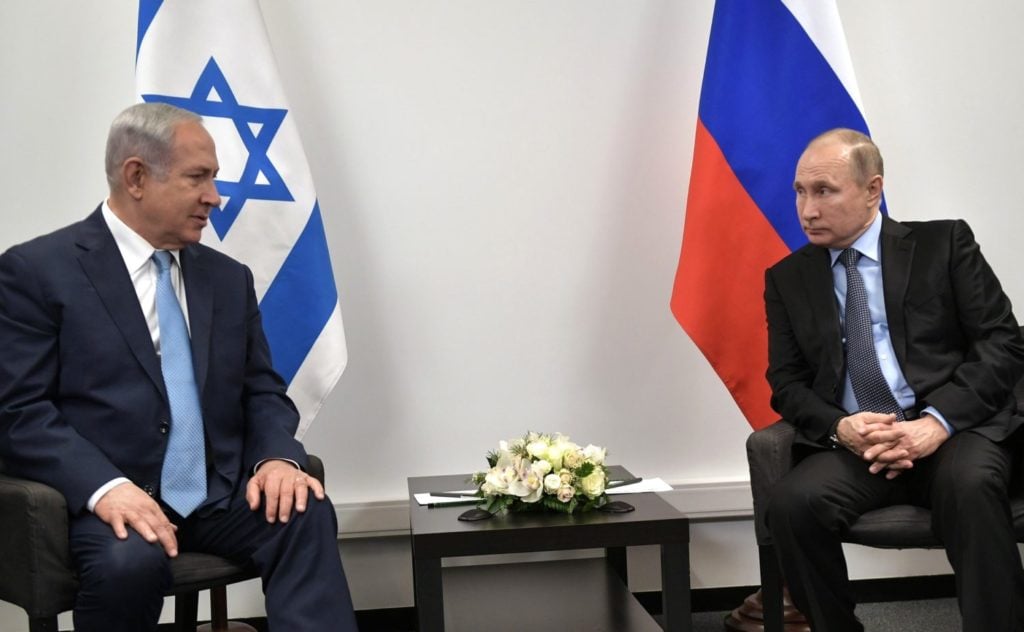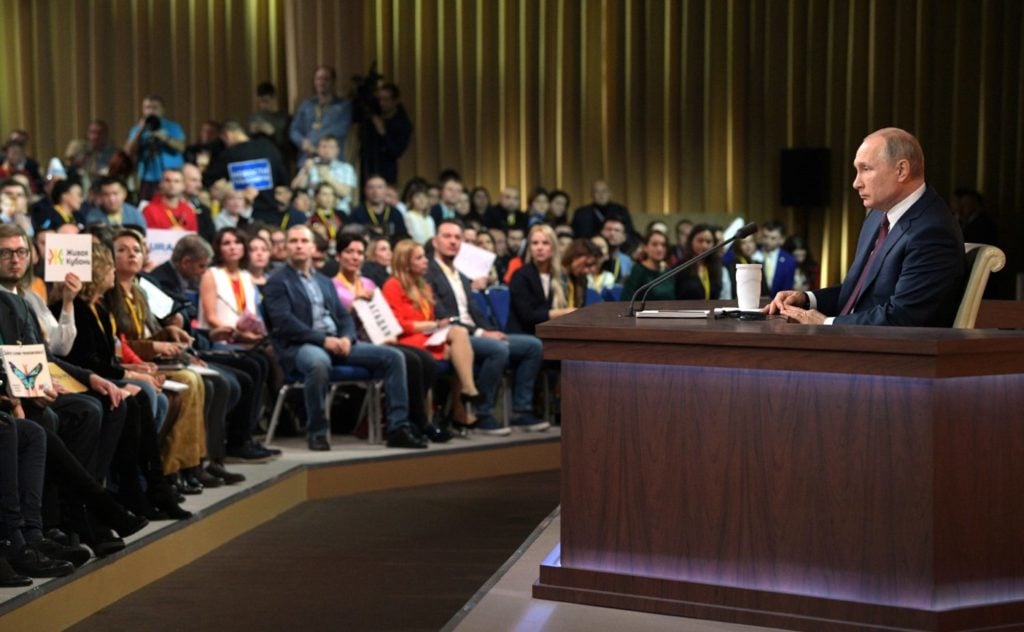Nine grams of marijuana has landed an Israeli-American woman into the middle of the complex world of foreign relations between the U.S., Israel and Russia.
Naama Issachar was arrested in Moscow on a layover between India and Israel with nine grams of marijuana in April. She was later sentenced to seven years in a Russian prison based on the claim she had admitted to drug possession and trafficking.
At her appeal earlier this month, Issachar’s attorneys argued that she was coerced into signing documents written in Russian without a translator and in fact did not confess to possession or trafficking. Furthermore, she claimed the drugs weren’t hers and she did not know how they ended up inside of her bag.
“When they made me sign the document that was written in Russian without understanding what was in it, I hand wrote [on the document] that I did not understand Russian,” Issachar was quoted saying to the court by Israeli news outlet YNetNews.
Avi Himi, leader of the Israel Bar Association, led Issachar’s defense personally with assistance from the Russian Bar Association.
“As head of the Israel Bar Association, I felt obligated to do everything that was necessary to promote Naama’s release,” Himi told L.A. Weekly in an email. “We thought her appeal would be accepted and she could return to her home in Israel. Unfortunately, this has not ended as we expected but the Bar has no ability to engage in international or local diplomacy and politics”.
With regular judiciary mechanisms to secure Issachar’s release all expended, the issue is now circling around the highest offices of power in both Israel and Russia.
 What seemed like a simple possession case that turned into ridiculous distribution charges during a time when Issachar couldn’t access her bag is now a major international incident between Russia and Israel. At the center of the controversy is what Israeli Prime Minister Benjamin Netanyahu will have to concede to Russian President Vladimir Putin to get Issachar home.
What seemed like a simple possession case that turned into ridiculous distribution charges during a time when Issachar couldn’t access her bag is now a major international incident between Russia and Israel. At the center of the controversy is what Israeli Prime Minister Benjamin Netanyahu will have to concede to Russian President Vladimir Putin to get Issachar home.
In a call to wish Putin happy holidays and discuss Syria the day after Christmas, Netanyahu also approached Issachar’s situation as a topic of discussion. He tweeted after the call he had asked Putin for Issachar to be released.
One factor playing into the wider situation is Putin’s trip to Israel later this month for The Fifth World Holocaust Forum to commemorate the 1.3 million Soviet Jews murdered. This year’s gathering carries extra weight as it marks the 75th anniversary of the end of the Holocaust in 1945. The Jerusalem Post reported their diplomatic sources said Netanyahu is trying to get Issachar home by the time the summit starts on January 23.
Netanyahu said he is hoping Putin will use his powers to get Issachar home in part based on how strong their relationship is in his opinion. The day before the call with Putin, Netanyahu gave himself a pat on the back on just strong it is.
“Putin told me that were it not for our relationship, we could have found ourselves in the midst of a military clash… Only because we meet every few months has this been avoided,” The Times of Israel reported Netanyahu saying in an interview. Netanyahu also called the charge against Issachar absurd.
Russia’s ambassador to Israel Anatoly Viktorov commented on the Issachar’s plight during an appearance on Israel’s i24News last month. After speaking on the current state of affairs on the ground in Syria, the conversation moved to cooperation around Issachar getting a pardon.
 Viktorov said he couldn’t comment on the possibility of future pardons. Viktorov also noted at the time he couldn’t see a connection between the Russians waiting to see who Israel’s next prime minister.
Viktorov said he couldn’t comment on the possibility of future pardons. Viktorov also noted at the time he couldn’t see a connection between the Russians waiting to see who Israel’s next prime minister.
“I understand the feelings of Miss Issachar’s mother,” Viktorov replied when asked if he had a message for the family. “Because it’s a very unpleasant situation for her daughter, but I can’t comment on the court decision.
Viktorov went on to say there was a lot of speculation in both the Israeli and Russian media around the case. “About whether it was a just decision, a grounded decision, I don’t know. Because I don’t know the details.”
Vikotorov said the picture presented was that she was just a girl in transit through Moscow’s airport, “but I don’t know.”
Lahav Harkov, senior contributing editor of The Jerusalem Post and a frequent commentator on Israeli politics, issued a scathing critique of the Russian’s approach to the current situation. Harkov said that Russia got the hint that the hint of how important the situation is to Israelis once Netanyahu got involved.
“This is a matter of utmost sensitivity to Israelis. And to Russian President Vladimir Putin, if Issachar is so important, the price of her freedom can be raised higher and higher,” Harkov said
Harkov also reported that Issachar’s family had received messages about Russian hacker Alexei Burkov. Burkov ended up being extradited to the U.S. in early November to face a spread of charges fraud, identity theft, computer intrusion and money laundering around a bunch of stolen credit card numbers he allegedly offered to sell from 2009 to 2013.
But then the wider question of is a crime involving 150,000 stolen credit cards the equivalent of possessing nine grams of marijuana? Well, maybe in Russia where they really hate pot. The CBC reported earlier this year on Russia and Japan leading the opposition to Canada and Uruguay signing on to the World Health Organization’s effort to lower the international scheduling of cannabis.
John Walsh of the Washington Office on Latin America broke down the current situation with Russia to the CBC in December.
“For Russia, it’s a tantalizing opportunity not just to bash Canada but to call the West on its hypocrisy on the rules-based international order, and sow divisions among the West, which it sees as antagonistic and oppressive of its interests,” Walsh told CBC News.
Russia has generally handled drugs on the wrong side of the Iron Curtin with an iron fist. The Moscow Times explained in April how Russia is imprisoning the most drug offenders in Europe per capita. Most of them were convicted under Article 228 of the Russian criminal code. That section of the law is actually called “the people’s article” because of how many people are in jail because of it.
We’ll know in a couple of weeks if Netanyahu will be successful in getting Issachar back in Israel in time for the World Holocaust Forum later this month. But things are looking rough. On New Year’s Eve, it was reported that Issachar had been moved to a new, worse, prison in Moscow. Her family is also claiming that she is not allowed to see them or receive letters.
Advertising disclosure: We may receive compensation for some of the links in our stories. Thank you for supporting LA Weekly and our advertisers.

